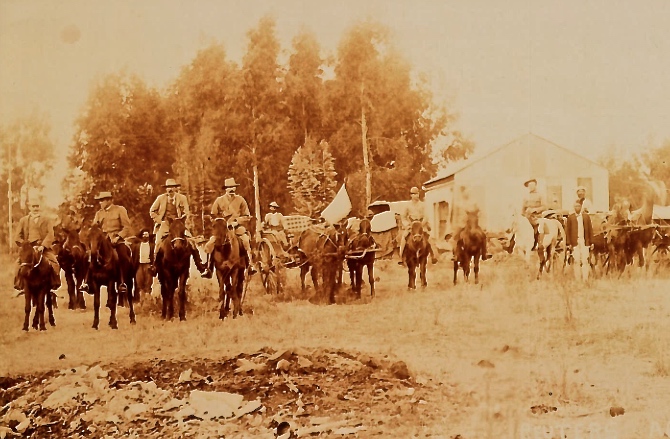Archives
Messages from his mother to Churchill behind bars - thanks to Reuters
Friday 27 March 2015
 Winston Churchill, British prime minister and second world war leader, had Reuters to thank for messages from his mother when as a young journalist he was held prisoner of war in Africa.
Winston Churchill, British prime minister and second world war leader, had Reuters to thank for messages from his mother when as a young journalist he was held prisoner of war in Africa.
Late in 1899, Churchill was captured during the Boer War. The Boers’ two independent republics were situated in the southern part of Africa. War with Britain broke out on 12 October 1899.
Churchill, 25, became a war correspondent for The Morning Post at the high salary of £250 per month. Some weeks later he accompanied a scouting expedition in an armoured train - an episode portrayed in the film Young Winston.
Captured by the Boers, he was detained in a PoW camp in Pretoria, capital of the Transvaal (Zuid-Afrikaansche Republiek).
As a prisoner, he received two telegrams from his mother, making use of Reuter's private telegram service.
The service had been a Reuters mainstay from 1871. Vitally, it made money - unlike the more glamorous editorial service which made very little. By 1899 it extended to India, the Far East, Australia and New Zealand - as well as South Africa.
Using its own codes that allowed large savings in wordage, Reuters was able to place telegrams for firms and private individuals much more cheaply than they could do for themselves. A 14-word message could sometimes be compressed into as few as three words. Messages were “packed” together into one telegram to or from some distant and telegraphically-expensive place. Identical large code books became prominent features in Reuters offices.
WH Mackay served as Reuter's agent for Pretoria. In 1899, Reuters would have been perceived by the Boers as an unquestionably British and therefore enemy organisation. Yet the Boers still permitted the agency to remain open and operational.
On receipt of cables from Churchill’s American mother Jennie, Lady Randolph Churchill, Mackay forwarded them to the Secretary of the Transvaal War Department.
To the point when her telegram arrived at Reuters in Pretoria, Lady Churchill was an ordinary customer. From that point her contacts and influence in high places granted her special status, however.
Persuading the Transvaal government to deliver the telegrams to Churchill in his PoW camp fell far outside Reuters' usual service.
The respectful tone of Mackay’s request - “If your Honourable Government can see its way to hand the cables to Mr Churchill we shall feel obliged” - seems astonishing to 21st century eyes. It was unquestionably war. But it was the last of the “gentleman’s wars”.
Despite being a prisoner in a Boer PoW camp and in imminent danger of being shot by firing squad, Churchill’s relationship with his mother seems to have remained a distant one as demonstrated by the telegrams. They seem clipped and formal to say the least. One sent on 30 November and received in Lourenço Marques on 5 December said: "From Reuter, London. Tell Churchill buck up. Mother. Love. Morning Post doing best."
Churchill died in 1965 aged 90.
Additional reporting by David Cutler, assistant archivist
PHOTO: Reuters Pretoria office, 1900. ■
- « Previous
- Next »
- 43 of 49